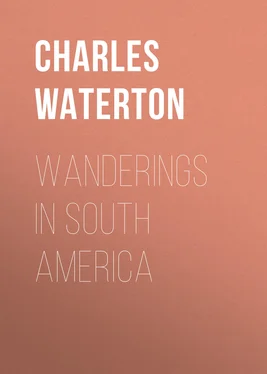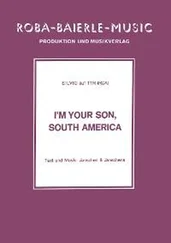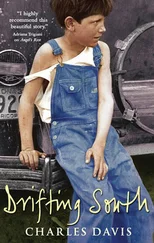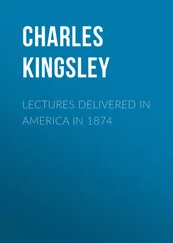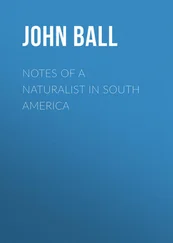Charles Waterton - Wanderings in South America
Здесь есть возможность читать онлайн «Charles Waterton - Wanderings in South America» — ознакомительный отрывок электронной книги совершенно бесплатно, а после прочтения отрывка купить полную версию. В некоторых случаях можно слушать аудио, скачать через торрент в формате fb2 и присутствует краткое содержание. Жанр: Путешествия и география, История, foreign_edu, foreign_antique, foreign_prose, на английском языке. Описание произведения, (предисловие) а так же отзывы посетителей доступны на портале библиотеки ЛибКат.
- Название:Wanderings in South America
- Автор:
- Жанр:
- Год:неизвестен
- ISBN:нет данных
- Рейтинг книги:5 / 5. Голосов: 1
-
Избранное:Добавить в избранное
- Отзывы:
-
Ваша оценка:
- 100
- 1
- 2
- 3
- 4
- 5
Wanderings in South America: краткое содержание, описание и аннотация
Предлагаем к чтению аннотацию, описание, краткое содержание или предисловие (зависит от того, что написал сам автор книги «Wanderings in South America»). Если вы не нашли необходимую информацию о книге — напишите в комментариях, мы постараемся отыскать её.
Wanderings in South America — читать онлайн ознакомительный отрывок
Ниже представлен текст книги, разбитый по страницам. Система сохранения места последней прочитанной страницы, позволяет с удобством читать онлайн бесплатно книгу «Wanderings in South America», без необходимости каждый раз заново искать на чём Вы остановились. Поставьте закладку, и сможете в любой момент перейти на страницу, на которой закончили чтение.
Интервал:
Закладка:
“Tudhoe has no river, a misfortune ‘ valde deflendus .’ In other respects the vicinity was charming; and it afforded an ample supply of woods and hedgerow trees to insure a sufficient stock of carrion crows, jackdaws, jays, magpies, brown owls, kestrels, merlins, and sparrow-hawks, for the benefit of natural history and my own instruction and amusement.”
In 1796 Waterton left Tudhoe school and went to Stonyhurst College in Lancashire. It was a country house of the picturesque style of King James I., which had just been made over by Mr. Weld of Lulworth to the Jesuits expelled from Liége. The country round Stonyhurst is varied by hills and streams, and there are mountains at no great distance.
“Whernside, Pendle Hill, and Ingleboro’,
Three higher hills you’ll not find England thoro’,”
as they are described, with equal disregard of exact mensuration and of rhythm, in a local rhyme which Waterton learned. Curlew used to fly by in flocks, and the country people had also a rhyme about the curlew:—
“Be she white or be she black,
She carries sixpence on her back,”
which Waterton used to say showed how our ancestors valued the bird at table.
At Stonyhurst he read a good deal of Latin and of English literature, and acquired a taste for writing Latin verse. He always looked back on his education there with satisfaction, and in after-life often went to visit the college. Throughout life he never drank wine, and this fortunate habit was the result of the good advice of one of his teachers:—
“My master was Father Clifford, a first cousin of the noble lord of that name. He had left the world, and all its alluring follies, that he might serve Almighty God more perfectly, and work his way with more security up to the regions of eternal bliss. After educating those entrusted to his charge with a care and affection truly paternal, he burst a blood-vessel, and retired to Palermo for the benefit of a warmer climate. There he died the death of the just, in the habit of St. Ignatius.
“One day, when I was in the class of poetry, and which was about two years before I left the college for good and all, he called me up to his room. ‘Charles,’ said he to me, in a tone of voice perfectly irresistible, ‘I have long been studying your disposition, and I clearly foresee that nothing will keep you at home. You will journey into far-distant countries, where you will be exposed to many dangers. There is only one way for you to escape them. Promise me that, from this day forward, you will never put your lips to wine, or to spirituous liquors.’ ‘The sacrifice is nothing,’ added he; ‘but, in the end, it will prove of incalculable advantage to you.’ I agreed to his enlightened proposal; and from that hour to this, which is now about nine-and-thirty years, I have never swallowed one glass of any kind of wine or of ardent spirits.”
After leaving college Waterton stayed at home with his father, and enjoyed fox-hunting for a while. To the end of his days he liked to hear of a good run, and he would now and then look with pleasure on an engraving which hung in the usual dining-room at Walton Hall, representing Lord Darlington, the first master of hounds he had known, well seated on a powerful horse and surrounded by very muscular hounds. In 1802 he went to visit two uncles in Spain, and stayed for more than a year, and there had a terrible experience of pestilence and of earthquake:—
“There began to be reports spread up and down the city that the black vomit had made its appearance; and every succeeding day brought testimony that things were not as they ought to be. I myself, in an alley near my uncles’ house, saw a mattress of most suspicious appearance hung out to dry. A Maltese captain, who had dined with us in good health at one o’clock, lay dead in his cabin before sunrise the next morning. A few days after this I was seized with vomiting and fever during the night. I had the most dreadful spasms, and it was supposed that I could not last out till noon the next day. However, strength of constitution got me through it. In three weeks more, multitudes were seen to leave the city, which shortly after was declared to be in a state of pestilence. Some affirmed that the disorder had come from the Levant; others said that it had been imported from the Havanna; but I think it probable that nobody could tell in what quarter it had originated.
“We had now all retired to the country-house—my eldest uncle returning to Malaga from time to time, according as the pressure of business demanded his presence in the city. He left us one Sunday evening, and said he would be back again some time on Monday; but that was my poor uncle’s last day’s ride. On arriving at his house in Malaga, there was a messenger waiting to inform him that Father Bustamante had fallen sick, and wished to see him. Father Bustamante was an aged priest, who had been particularly kind to my uncle on his first arrival in Malaga. My uncle went immediately to Father Bustamante, gave him every consolation in his power, and then returned to his own house very unwell, there to die a martyr to his charity. Father Bustamante breathed his last before daylight; my uncle took to his bed, and never rose more. As soon as we had received information of his sickness, I immediately set out on foot for the city. His friend, Mr. Power, now of Gibraltar, was already in his room, doing everything that friendship could suggest or prudence dictate. My uncle’s athletic constitution bore up against the disease much longer than we thought it possible. He struggled with it for five days, and sank at last about the hour of sunset. He stood six feet four inches high; and was of so kind and generous a disposition, that he was beloved by all who knew him. Many a Spanish tear flowed when it was known that he had ceased to be. We got him a kind of coffin made, in which he was conveyed at midnight to the outskirts of the town, there to be put into one of the pits which the galley-slaves had dug during the day for the reception of the dead. But they could not spare room for the coffin; so the body was taken out of it, and thrown upon the heap which already occupied the pit. A Spanish marquis lay just below him.
“Thousands died as though they had been seized with cholera, others with black vomit, and others of decided yellow fever. There were a few instances of some who departed this life with very little pain or bad symptoms: they felt unwell, they went to bed, they had an idea that they would not get better, and they expired in a kind of slumber. It was sad in the extreme to see the bodies placed in the streets at the close of day, to be ready for the dead-carts as they passed along. The dogs howled fearfully during the night. All was gloom and horror in every street; and you might see the vultures on the strand tugging at the bodies which were washed ashore by the eastern wind. It was always said that 50,000 people left the city at the commencement of the pestilence; and that 14,000 of those who remained in it fell victims to the disease.
“There was an intrigue going on at court, for the interest of certain powerful people, to keep the port of Malaga closed long after the city had been declared free from the disorder; so that none of the vessels in the mole could obtain permission to depart for their destination.
“In the meantime the city was shaken with earthquakes; shock succeeding shock, till we all imagined that a catastrophe awaited us similar to that which had taken place at Lisbon. The pestilence killed you by degrees, and its approaches were sufficiently slow, in general, to enable you to submit to it with firmness and resignation; but the idea of being swallowed up alive by the yawning earth at a moment’s notice, made you sick at heart, and rendered you almost fearful of your own shadow. The first shock took place at six in the evening, with a noise as though a thousand carriages had dashed against each other. This terrified many people to such a degree that they paced all night long up and down the Alameda, or public walk, rather than retire to their homes. I went to bed a little after midnight, but was roused by another shock about five o’clock in the morning. It gave the bed a motion which made me fancy that it moved under me from side to side. I sprang up, and having put on my unmentionables (we wore no trousers in those days), I ran out, in all haste, to the Alameda. There the scene was most distressing: multitudes of both sexes, some nearly in a state of nudity, and others sick at stomach, were huddled together, not knowing which way to turn or what to do.
Читать дальшеИнтервал:
Закладка:
Похожие книги на «Wanderings in South America»
Представляем Вашему вниманию похожие книги на «Wanderings in South America» списком для выбора. Мы отобрали схожую по названию и смыслу литературу в надежде предоставить читателям больше вариантов отыскать новые, интересные, ещё непрочитанные произведения.
Обсуждение, отзывы о книге «Wanderings in South America» и просто собственные мнения читателей. Оставьте ваши комментарии, напишите, что Вы думаете о произведении, его смысле или главных героях. Укажите что конкретно понравилось, а что нет, и почему Вы так считаете.
